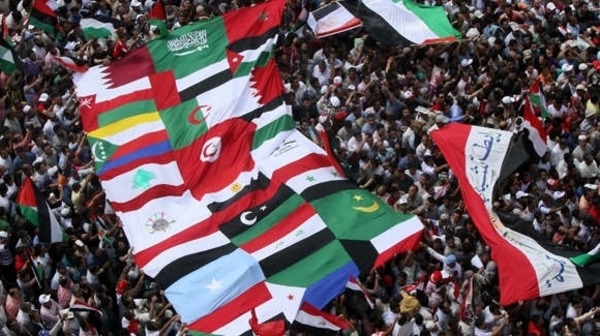Said Chaaya - Between the French Revolution of 1789 and the so-called Arab Revolutions, where is the missing link? (2)
Well, unfortunately not. It is not a revolt, nor is it even a revolution, and it does not seem to be a revolution in the making. This, in our opinion, is due to the simple fact that it lacks an essential element : its relation to religion, or more precisely a questioning of religion and its role in modern society and the governing bodies of a democratic state. Here we come to the serious problem of secularism. A well understood secularism should not scare anyone.
It is not in any way a rejection of religion, which actually falls under the thought of utopia as the idea of a transcendent being is engraved in the human mind. The man will be always looking up at something which is beyond: peace and rest. Secularism must be regarded as more respectful for the faith or beliefs of each, which in any case should not be imposed on others. We design secularism as the free circulation of faith, which supports the commitments and actions of everyone but that does not become the law “in the city” (al madina). It becomes, paradoxically, the guarantee of the religion of men.
Without risking anachronism or compare the incomparable, note that the French Revolution upset the existing order, by eliminating the structure of the three orders, those of the clergy, the nobility and the third estate. In those circumstances, nothing stopped the revolutionaries, not even their own creed. The majority religion in France, Catholicism (even though there were many Protestants and Jews), was bullied because it was considered an obstacle to the improved political and social system. The priests had to swear loyalty to the Civil Constitution of the Clergy. Soon in lieu of any other religion, the cult of Reason and the Supreme Being, would be imposed. This was probably in order to give primacy to the Reason. But the cult of Reason, was it really… reasonable ?
Destroying religion to transform a society, however, has not been the driving force of change. This is not a sufficient sign of transformation, much less an evolution of a society solution. But take a step back to go beyond religion, as certainly this is the missing link that we mentioned at the beginning of this column last month, and that which is wanted. It is highly desired these days, in the movements in Arab countries, to allow the construction of a state free of any ideology and any religious affiliation.
A century after the collapse of the Ottoman Empire, the Arab countries are still in search of a lost identity after the fall of Empire. An identity not found yet and which has continued to change throughout the 20th century. They swing today as they did on the eve of the First World War, between the Arab identity and Islamic identity, as the Ottoman identity now no longer exists ! The place of religion is central because it is the only solid foundation on which anything can be built, even if it is a transitory identity. But what we hope is that this religious base identity becomes a cornerstone on which all of the different components of these societies can build a mutual agreement and thus find their place within ‘ a democratic state. The acceptance of religious and ethnic diversity will be a tangible sign of real change in this country, and then and only then we can start talking about revolution!








Leave A Comment